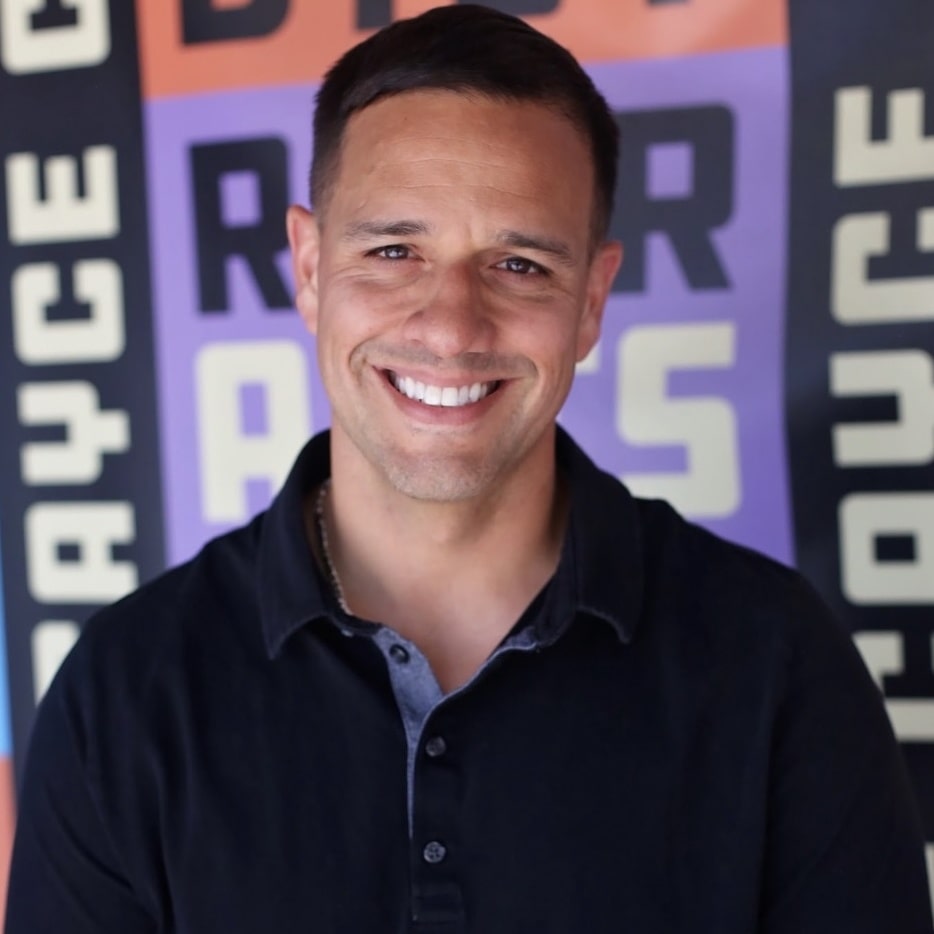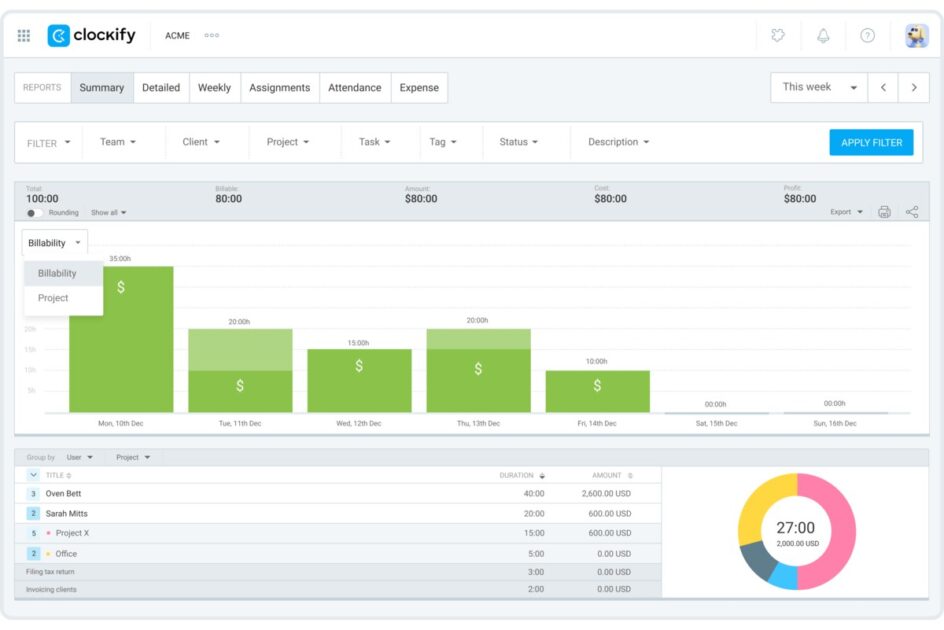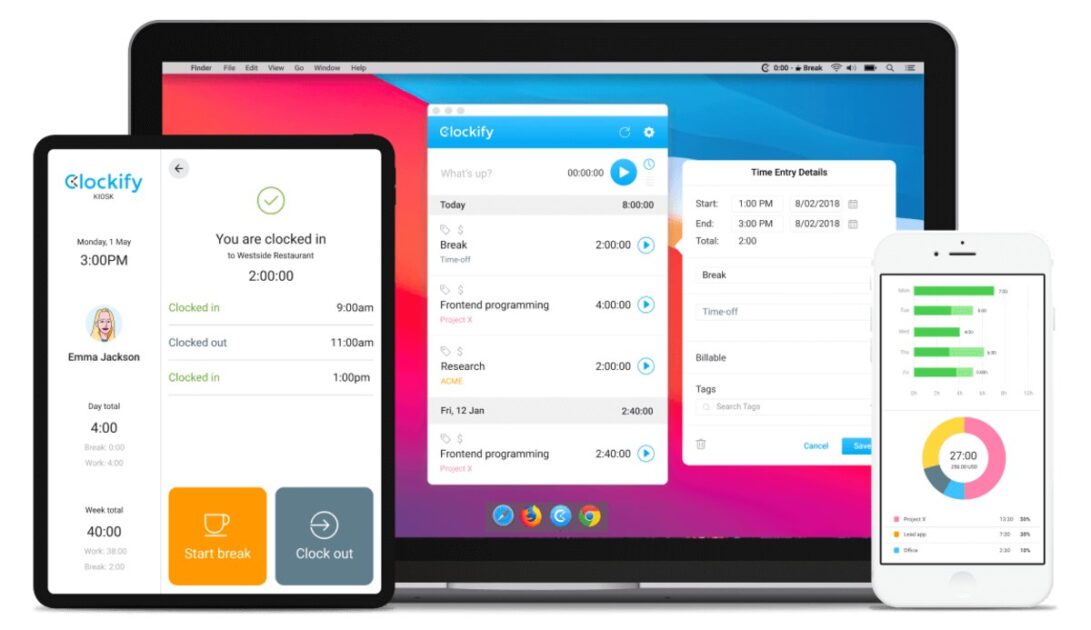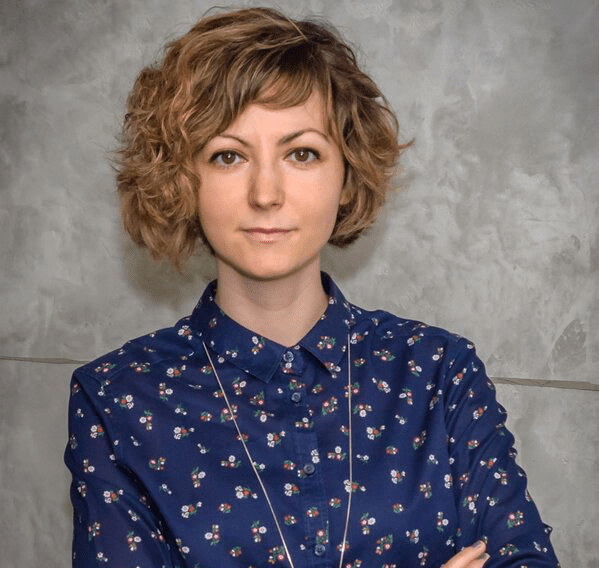Taking some “me” time every day helps you raise efficiency in other areas of life. In fact, successful entrepreneurs like Rich Cardona live by this rule.
Rich is the owner of content studio UNFLTR, host of The Leadership Locker podcast, and former member of the US Marine Corps.
So, how did Rich figure out the importance of dedicating time to self-care? By tracking his time with Clockify.
We sat down with Rich Cardona for an insightful discussion about his career path, staying mindful, and Clockify’s role in both.
Table of Contents
Rich Cardona’s career: US Marine Corps, leadership, and podcasting
First, we asked about Rich’s experience as a former Marine:

“I knew I needed some character, some discipline. I went into the Marines, and I was gonna do 4 years. Three years into it, 9/11 happened, and then I re-enlisted after that. Enlisted means that I was an enlisted rank — sergeant.”
During our interview, Rich shared that he picked up several habits as a Marine and how they affected his work ethic:

“I was trying to set a different standard. Just be very consistent with the way I show up — and appearance was one of those things.”
His leadership style also relies on his experience in the Marine Corps, as our interlocutor explained:

“Why do you think workers are performing so well? Why do you think I’m crushing everyone’s numbers? Why do you think the culture of my team is so strong? It’s because I’m involved. The most important thing we need to do is invest in people. That’s something I learned from the military — it’s never about you, it’s about your marines.”
Beyond his military experience, Rich is also a passionate podcaster. He shared the advantages of repurposing podcasts, compared to other media types:

“The podcast gives you written content — if you get a transcription, you turn it into a blog. If you’re videotaping it, you have video content, as well.”
💡 CLOCKIFY PRO TIP
Learn how to encourage transparency and accountability among your team members in the following article:
How UNFLTR was launched
Rich satisfied our curiosity by sharing the story about his company, UNFLTR, and its origins:

“I started experimenting with videography, and that’s when I thought to myself: ‘OK, maybe there’s a business here.’”
Our interlocutor continued, reminiscing about his days as a beginner videographer:

“I was trying to learn how to edit because I believe that anyone can press Record. How can you put together something with music and make it stimulating, attractive? How can you put together something that separates one business from another?”
In Rich’s words, his business now offers solutions that drive clients’ growth:

“I love talking to people, helping them enhance their brand, and show up authentically. This became my core business:
- Creating video content for business owners and CEOs,
- Researching what questions are being asked about their industry,
- Seeing the engagement they get, and
- Helping them grow a profile, a brand.”
💡 CLOCKIFY PRO TIP
If you’re a budding entrepreneur or freelancer, you’re probably baffled by setting prices. To keep things crystal clear, follow our simple guidelines:
✉️ If you’re a Clockify user (or also use Pumble and Plaky, within the CAKE.com Bundle) and you’d like to have your own customer story featured on our blogs, reach out to us at pr@cake.com!
Clockify benefits that improved Rich Cardona’s work ethic
Our interlocutor praised Clockify for showing exactly where his time goes. That said, Rich revealed that he uses it for both time and habit tracking:

“There’s a big difference between convincing myself that I really put a solid foot forward enhancing my copywriting skills — the feeling vs. looking at the tracked time. Clockify has absolutely helped me look at what my habits are, good and bad, and to enhance my skills.”
Track learning time with Clockify
Additionally, Rich noted that Clockify allows him to identify time gaps during the day. He also tracks time on meetings and social media, realizing that random scrolling can add up to 30–40 hours a month.
With Clockify, Rich successfully balances his personal and professional life — a perk he illustrates by outlining his daily routine:

“I’m up at 4 a.m. I go to the gym, come home, read, meditate, and spend time with my daughter. My workday starts around 9 a.m. and I’m up by 4 p.m. I have 5 hours that include physical fitness, mental health, socialization, time with family, and being a dad.”
Our simple yet impactful time tracker also allows him to keep his health in check:

“The ‘me time’ is substantial. I know I’m accomplishing far more than many of my counterparts who think entrepreneurship is doing whatever you want. I also know that I’m optimizing my health and mental state. Auditing my time has been largely fruitful.”
💡 CLOCKIFY PRO TIP
Speaking of mental health, check out our in-depth article about mental fatigue and how to overcome it:
How UNFLTR makes the most of Clockify
Next, Rich revealed his reasons for introducing Clockify to his team:

“It wasn’t to micromanage. I just wanted to understand the same things I did. For example, ‘Why did I spend so much time on this graphic?’ I spent an hour and a half doing a graphic or scrolling through emails even though there was nothing new for an hour.”
Now, let’s see what Clockify features Rich found most useful.
💡 CLOCKIFY PRO TIP
Find out how Clockify can upgrade your team’s performance through timekeeping below:
Clockify feature #1: Reports
Rich first endorsed Clockify’s reports, recognizing how practical they are for tracking work habits and making future decisions:

“The reporting is what helps the most. When you’re able to see the accumulation of everything, you can say: ‘Next month, if I cut this in half, that means I can add five hours here.‘ That’s really motivating because I know next month is going to be solid.”
Plan resources better with Clockify

The image above showcases Clockify’s versatile reports, which vary in terms of data amount and category. To track employee work and plan for better outcomes, we suggest you try:
- Summary reports — a quick rundown of daily progress, including clear charts and filters to narrow down data, and
- Detailed reports — in-depth analysis of all time entries with billable amounts and related projects.
Speaking of report types, Rich seems to prefer the weekly reports:

“I would say that Weekly reporting, or the Reporting function as a whole, is probably the most important.”
Clockify feature #2: Timer
Our interlocutor was enthusiastic about Clockify’s timer, explaining how it helps him remain transparent about his time use:

“When you have a timer running, it doesn’t lie. The timer function is a bit more granular, and sometimes I prefer that. So, I can know if I really spent 40 minutes on lunch. Knowing that the clock is ticking helps me stay on track.”
Tracking time with our timer is simple enough — just start it while you’re working on something and stop once you’re done. As a bonus, Clockify’s integrations let you use it directly in other work apps, maximizing its potential. Our time tracker syncs seamlessly with apps like:
- Plaky,
- Jira,
- Asana,
- Trello,
- Todoist, etc.
💡 CLOCKIFY PRO TIP
If you’re a fan of manual time entry, you’ll appreciate our pre-made timesheet templates:
How Clockify supports Rich Cardona’s entrepreneurial pursuits
Clearly, Rich excels in building sustainable businesses and a healthy work culture — with Clockify’s help.
Since learning about our cost-effective time tracker, our interviewee reaps the fruits of its reliable services:
- Understanding where everyone’s time goes,
- Ensuring a strong work-life balance, and
- Maintaining good health.
These perks are NOT beyond your reach — simply explore Clockify’s capabilities:
- Use one-click time tracking for efficiency and convenience, and
- Analyze reports to plan out better future strategies.

Ultimately, Rich is living proof that you can easily mold Clockify to fit your work terminology, structure, and goals — no matter your industry.



